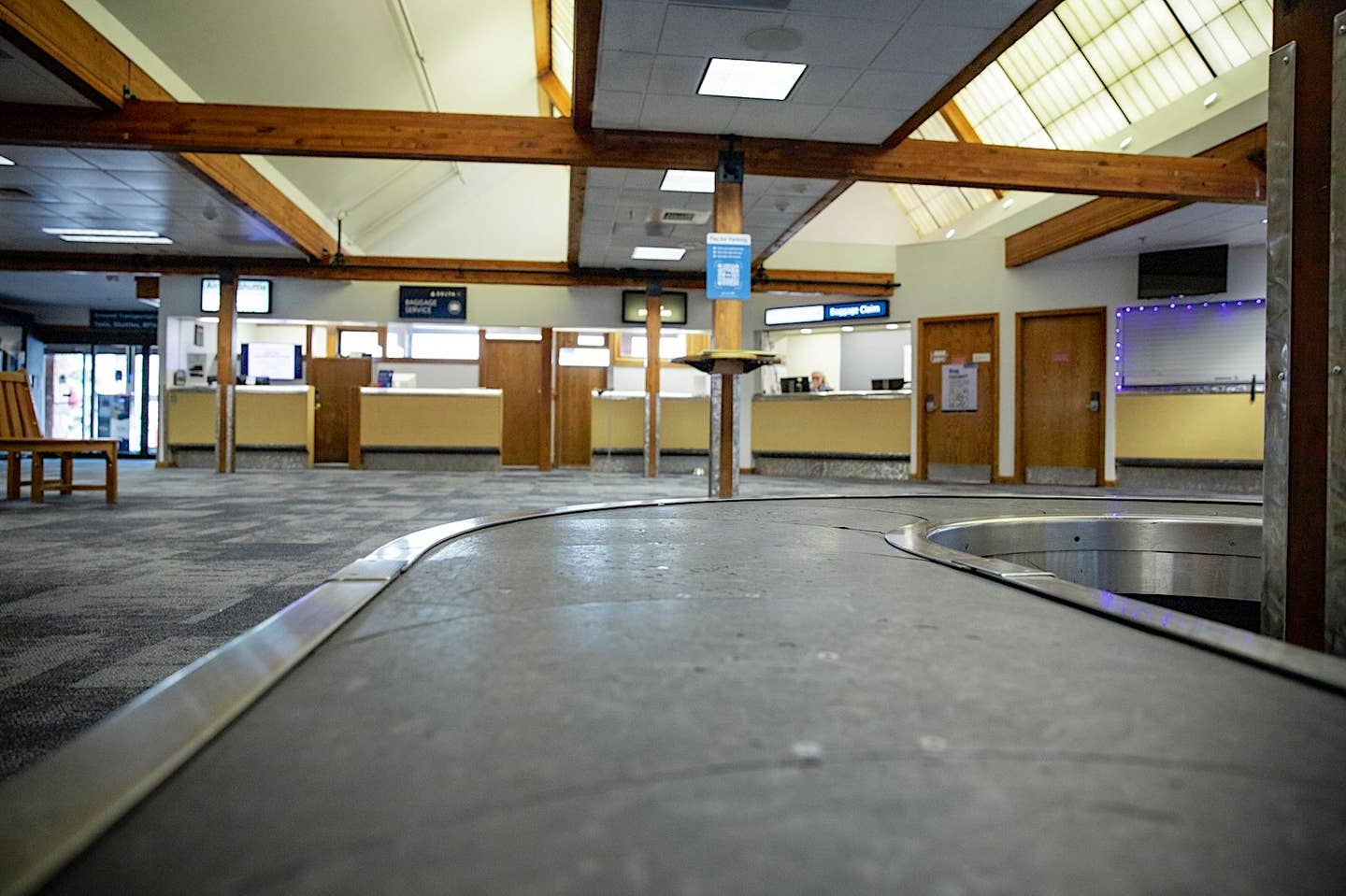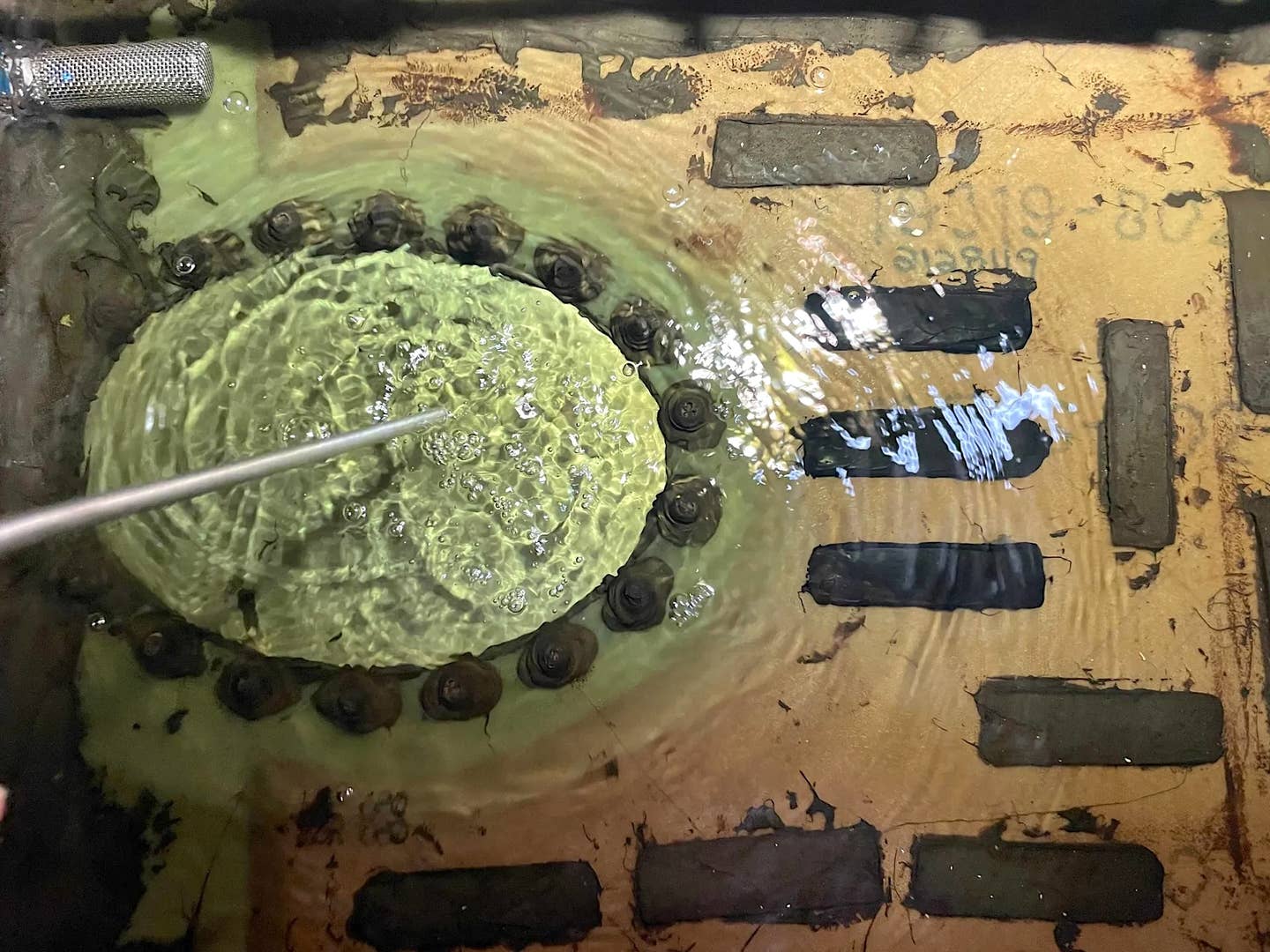Donor’s Family Lays Claim To Museum’s Wright Airplane
The family of Grover Bergdoll, the original owner of this Wright Model B hanging at the Franklin Institute, say they want the plane back.

Daderot/Wikimedia
The family of a notorious early 20th century bon vivant draft dodger are laying claim to a priceless Wright Model B airplane that has been at Philadelphia's Franklin Institute for most of the last century. According to the New York Times, the descendants of Grover Bergdoll say the museum's account of how it came into the lofty piece of American history doesn't add up and they've concluded, in the absence of evidence to the contrary, that their fast-living dear old dad couldn't have actually given the Franklin the plane in 1933. Now they want it back.
Since it acquired the aircraft, a two-place 1911 model that's a definite improvement on earlier models with its rear mounted control surfaces and seats for the occupants, the museum has always said it had a letter on file from Bergdoll gifting it to them. But according to the New York Times, it has recently admitted there is no such letter and that it was a "verbal" agreement with Bergdoll that landed the intensely historic artifact in the museum.
But Bergdoll's daughter Katharina says that explanation doesn't fly because her father was in hiding in Germany at the time and the plane was no longer his to give since it had been seized by the federal government.
Bergdoll was a well-known scofflaw who drove fast cars and buzzed his neighbors in the Wright. He was known as the Playboy of the Eastern Seaboard. He also refused to fight in the First World War and, in a case that gripped the nation, was imprisoned for it in the early 1920s. He later escaped from guards, fled to Europe and set up housekeeping in Germany, and the U.S. government seized the assets he left behind. The museum claimed Bergdoll transferred the plane to them by letter in 1933. It's since changed its story and said the agreement was verbal.
"Getting a verbal agreement—how was it possible when my father was a fugitive at the time in Germany?" Katharina wondered aloud to the Times. "You could not have reached him," adding that since the government technically owned the plane at the time, he could not have legally transferred it. Bergdoll eventually got most of his stuff back after he had returned to the U.S. in the 1940s and served a four-year prison sentence for his youthful transgressions. The plane stayed at the museum.
Katharina and her family either want the plane back or compensation for it and they'd also like the museum to come clean about how they obtained it. The museum told the Times in a statement this is the first time anyone has questioned its claim to the plane. "At no time between 1935 and Mr. Bergdoll's death in 1966 did he, his mother, Emma, or his wife, Berta, ever claim any right to the airplane, dispute the validity of the gift, or request its return," the museum's statement to the Times said.






